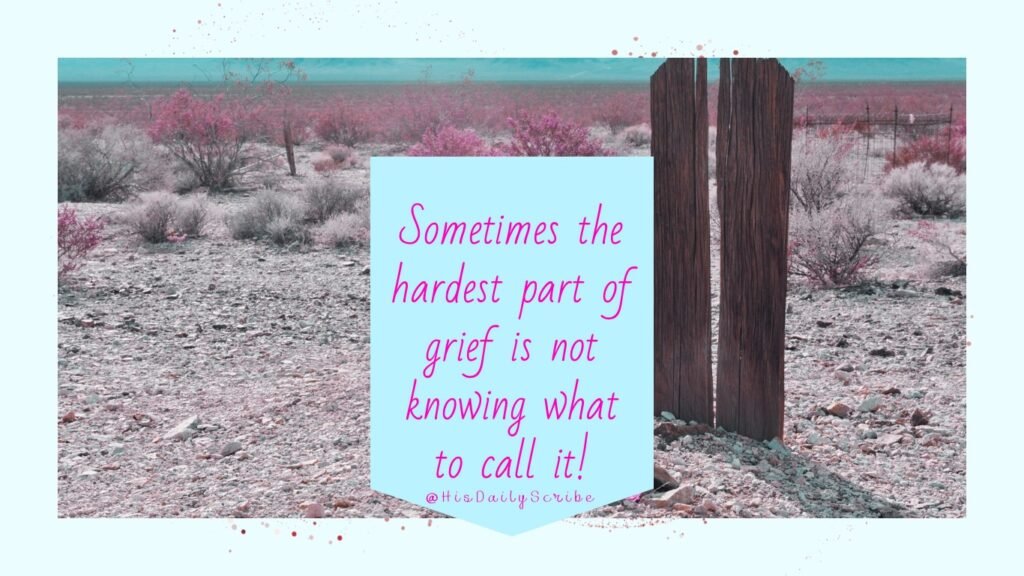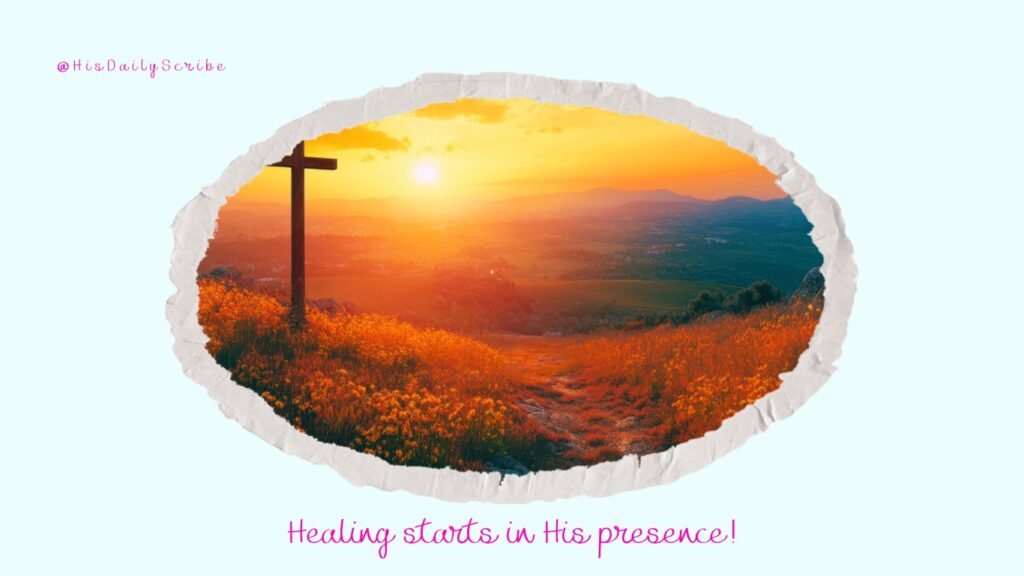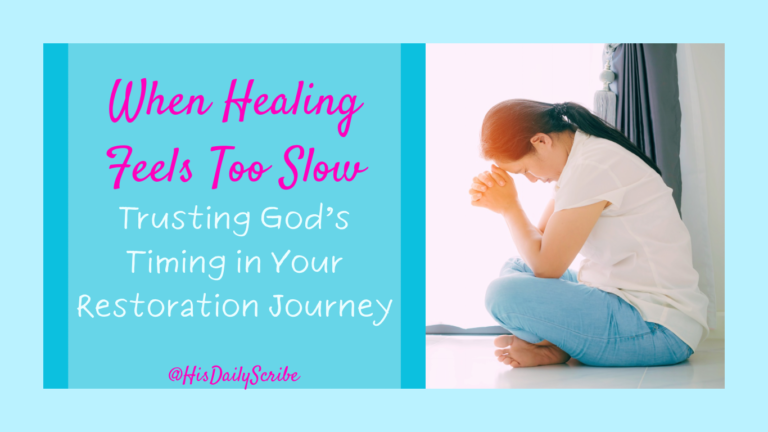The Grief No One Sees: Healing from What You Can’t Even Explain
Table of Contents
Some grief is loud—funerals, flowers, casseroles, cards.
But some grief is silent. It hides behind held-together faces and polite answers like “I’m fine.” It lives in memories that won’t settle, in the sharp ache of what never happened, and in the daily endurance of wounds no one validated.
This post is for the woman who smiles while breaking.
For the one who’s still functioning, still parenting, still serving—while carrying grief that never made the headlines of her life. From the grief no one sees.

When Your Grief Has No Name
Not all grief is attached to a death certificate. Sometimes grief sounds like:
- “I thought we’d still be friends by now.”
- “I never got to hold the baby I prayed for.”
- “I lost myself while trying to be who they needed.”
- “They hurt me in God’s name—and I’m still bleeding.”
- “I survived my childhood, but it still echoes in my adulthood.”
This is the grief that goes unnamed. It’s the grief no one sees. The kind people don’t recognize because it doesn’t have a clear “event.” It’s the slow drip of soul-loss, the brokenness you’ve learned to organize around.
And when you try to talk about it? You’re told you’re “too sensitive,” “still not over it,” or “letting the enemy win.”
But the truth is: you’re carrying a pain that was never safe enough to process.

Jesus Weeps With You: A Savior Who Sees Every Tear
When Lazarus died, Jesus did something shocking.
He didn’t quote theology.
He didn’t minimize the pain.
He didn’t rush the process.
“Jesus wept.” – John 11:35 (KJV)
He entered into the grief—fully. Even knowing resurrection was minutes away, He stood in the sadness with Mary and Martha first.
That’s the kind of Savior you have. He’s not waiting for you to “move on.”
He’s standing in the quiet corners of your life where no one else came.
He’s weeping where no one else knew to cry.
“Thou tellest my wanderings: put thou my tears into thy bottle: are they not in thy book?” – Psalm 56:8 (KJV)
Not one tear wasted. Not one ache missed. He doesn’t need the world to recognize your grief before He does.

Letting God Name and Hold the Pain
Sometimes the hardest part of grief is not knowing what to call it.
There was no funeral for the version of you that was crushed by betrayal.
No obituary for the dream that quietly died.
No memorial service for your spiritual innocence after church hurt.
And yet—those losses were real.
Grief without language is like walking around with a broken bone no one can see. But God is not afraid of naming things. In fact, His very nature is to call things by their name and still redeem them.
Try asking:
“Holy Spirit, what have I never given myself permission to grieve?”
If you’re not ready to write it, whisper it.
If you’re not ready to share it, speak it in prayer.
If you can’t speak it yet, let Jesus carry the weight of it until you can. Grief is not weakness.

Healing Starts in the Presence, Not Performance
The world tells you to get over it. To move on. To be stronger.
But the Gospel never says healing comes through hustle.
Healing comes through presence. Through nearness.
Through a God who doesn’t run from your ache but leans in to hold it.
“To appoint unto them that mourn in Zion, to give unto them beauty for ashes, the oil of joy for mourning…” – Isaiah 61:3 (KJV)
He doesn’t skip the ashes or deny the mourning.
He just promises that He will meet you in it, and transform it.
You don’t have to “feel better” to be held by God.
You just have to let Him in—to the parts of you that feel too messy, too undone, too weary to keep pretending.
“Grief is not weakness; it’s evidence that you’ve loved deeply.”
When Grief Comes in Waves
Here’s the thing no one tells you: grief is not linear.
It doesn’t respond to your planner or your prayer life. You can be fine one day, and crushed the next.
That doesn’t make you faithless. It makes you human.
Grief revisits:
- When a song plays.
- When someone uses the same phrase they did.
- When your timeline doesn’t match your faith.
- When you realize what you hoped for won’t happen that way.
You’re not failing. You’re feeling.
And even in that—God is so near.
“The Lord is nigh unto them that are of a broken heart; and saveth such as be of a contrite spirit.” – Psalm 34:18 (KJV)

A Note from My Own Grief Journey
I know this grief personally. Not as a counselor. Not as a writer.
As a woman who has had to keep going when my heart wanted to collapse.
There have been seasons where grief was not one sharp moment—but a thousand quiet cuts.
People didn’t know what I was carrying. Sometimes I didn’t even know how to name it myself.
The betrayal that stole my trust.
The loss of what I thought life would look like by now.
The spiritual abuse that left me questioning what was God and what was control.
The dreams I buried because hope started to feel dangerous.
There were days I couldn’t journal. Couldn’t pray eloquently. Could barely breathe.
But in those days, I learned this: Jesus doesn’t wait for me to articulate the grief. He just comes and sits in it with me.
He doesn’t ask me to hurry up and heal. He doesn’t roll His eyes when I cry over the same wound again.
He just keeps showing up. Holding space. Holding me.
And if that’s all I can offer you today—it’s this:
You are not crazy. You are not weak. You are not behind.
You are grieving.
And God is closer than your next breath.
A Prayer for the Grieving Heart
Father,
I’m not even sure what to say. The pain is complicated. The ache doesn’t have a name.
But You see it anyway. You know what I’ve been holding. You know the things I never got to say goodbye to.
I give You access, Lord—not to fix it overnight, but to be with me in it.
I’ve tried to stay strong, but I’m tired. Tired of pretending. Tired of explaining. Tired of hiding.
So here it is: my unspoken grief, my silent sorrow, my broken hope.
Would You sit with me in it? Would You breathe over it?
I trust You with the tears no one else saw. With the dreams that died. With the words I was too afraid to say.
Wrap me in Your presence. Fill the aching places with peace.
And when I’m ready… show me how to keep living, not in spite of the grief—but with You in the middle of it.
In Jesus’ name,
Amen.
The Grief No One Sees: You’re Not Alone
Grief doesn’t make you broken. It makes you human.
And you don’t have to carry it alone anymore.
Leave a comment below, share your story, or just type “pray for me.”
We’re building a community where real hearts are welcome.
Related Post:
Grieving With Purpose: When Pain Doesn’t Cancel Your Calling







